July 2024 FloridAgriculture eNewsletter

By Rob Gilbert
[email protected]
@IFAS_VP
Former Putnam/St. Johns County Farm Bureau board member Eric Hjort is a leader. That means he works on behalf of Florida agriculture, not just for Tater Farms. Part of how he does that is by working with UF/IFAS.
Our capacity to help Farm Bureau members make a living depends on active participation from people like Eric. The future of farming in Florida is better off for his support of the land-grant mission through his engagement in our teaching, research and Extension.
Eric doesn’t just embrace innovation. He helps us discover. Currently he’s given us (specifically, Dr. A.J. Lindsey) access to 30 acres (15 acres in Lake Placid and 15 acres in Hastings) to figure out the best way to fertilize St. Augustine and Bermuda grass.
This helps Tater Farms. They get a look at how different fertilizer applications work on their farm. Their sacrifice of 30 acres also helps you, though, because the data generated from Tater Farms’ acreage will help us update fertilizer recommendations that FDACS consults as it makes rules in its BMP manuals for the whole state.
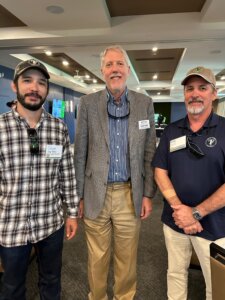 But Tater Farms is going much farther. Eric’s son Gage is a highly trained agricultural engineer who is working with our faculty members Drs. Nathan Boyd and Arnold Schumann on targeted spraying technology. With the help of artificial intelligence, Boyd, Schumann, and Gage hope to refine the spraying of non-selective herbicide on turf grass. This represents a huge potential win-win-win for turf farmers. It could reduce input costs, reduce environmental impact and increase turf yield because presently certain herbicides kill good turf along with bad weeds.
But Tater Farms is going much farther. Eric’s son Gage is a highly trained agricultural engineer who is working with our faculty members Drs. Nathan Boyd and Arnold Schumann on targeted spraying technology. With the help of artificial intelligence, Boyd, Schumann, and Gage hope to refine the spraying of non-selective herbicide on turf grass. This represents a huge potential win-win-win for turf farmers. It could reduce input costs, reduce environmental impact and increase turf yield because presently certain herbicides kill good turf along with bad weeds.
We need science to create these win-win-wins, and we need future-thinking emerging leaders like Gage to help us pursue win-win-win science.
Here we at UF/IFAS would like to take a little credit for Gage’s pursuit of innovation. He is a recent alumnus of our Agricultural and Biological Engineering Department, where he majored in biological engineering. And maybe even a little for Eric’s. Eric is a graduate of our Wedgworth Leadership Institute for Agriculture and Natural Resources, where he went through a two-year leadership development program that included travel throughout Florida, the U.S. and even a trip abroad.
Dr. Lincoln Zottarelli and colleagues are working with Tater Farms to see if they can automate irrigation through tile drainage. If it works, it will reduce water use by irrigating fields at just the right rate to maintain ideal soil moisture based on readings from sub-surface moisture sensors.
Tater Farms, started in 1975 by Frank and Polly Johns, has a history of success and innovation. Originally a cabbage and potato farm, they planted their first crop of turfgrass in 2004. Eric, president of Tater Farms, has helped continue this tradition of innovation and leadership by getting out in front of the industry by a decade on things like irrigation and targeted spraying. And they’re doing it by working with UF/IFAS.
He’s making sure you get the benefits, too, as he serves as a leader. I recently visited with him in his volunteer capacities as board member of the Turfgrass Producers of Florida and of the Florida Fruit & Vegetable Association.
Whether it’s through FFBF, TPF or FFVA, Eric is helping Florida get to farming of the future. UF/IFAS is helping him and Gage get there faster and more profitably.
Rob Gilbert is the University of Florida’s interim senior vice president for agriculture and natural resources and leader of the UF Institute of Food and Agricultural Sciences (UF/IFAS).

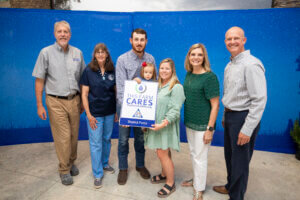
 The election of pork producer delegate candidates for the 2025 National Pork Producers (Pork Act) Delegate Body will take place at 10:00am on Thursday, July 25, 2024, in conjunction with a Board of Directors meeting of the Florida Pork Improvement Group at the Florida FFA Association office, 5600 SW 34th St., Gainesville, FL 32608. All Florida pork producers are invited to attend.
The election of pork producer delegate candidates for the 2025 National Pork Producers (Pork Act) Delegate Body will take place at 10:00am on Thursday, July 25, 2024, in conjunction with a Board of Directors meeting of the Florida Pork Improvement Group at the Florida FFA Association office, 5600 SW 34th St., Gainesville, FL 32608. All Florida pork producers are invited to attend.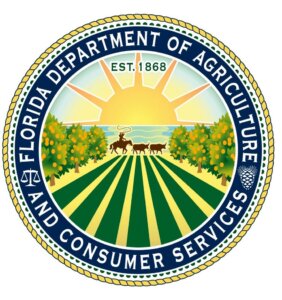
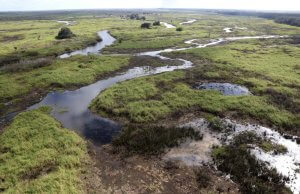 The South Florida Water Management District (SFMWD) manages five different Water Supply Planning Regions throughout their 16-county geographic boundary. These water supply plans are updated every five years and were developed to assess and project water demands and potential sources of water through 20-year planning horizon. The plan updates are used by local governments, water users and utilities to update and modify local comprehensive plans, facility work plans and ordinances.
The South Florida Water Management District (SFMWD) manages five different Water Supply Planning Regions throughout their 16-county geographic boundary. These water supply plans are updated every five years and were developed to assess and project water demands and potential sources of water through 20-year planning horizon. The plan updates are used by local governments, water users and utilities to update and modify local comprehensive plans, facility work plans and ordinances.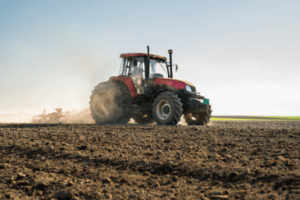 The Farm, Food, and National Security Act of 2024 (Farm Bill) passed out of Committee tonight in a vote of (33- 22). Four Democrats (Reps. Bishop (GA), Caraveo (CO), Davis (NC), and Sorenson (IL)) joined with all Republican committee members in voting yes. No floor time has been scheduled to date. Democrats and Republicans sparred over the main issue of funding for the total farm bill. The proposed legislation would draw on SNAP as a source of funds to cover commodity programs.
The Farm, Food, and National Security Act of 2024 (Farm Bill) passed out of Committee tonight in a vote of (33- 22). Four Democrats (Reps. Bishop (GA), Caraveo (CO), Davis (NC), and Sorenson (IL)) joined with all Republican committee members in voting yes. No floor time has been scheduled to date. Democrats and Republicans sparred over the main issue of funding for the total farm bill. The proposed legislation would draw on SNAP as a source of funds to cover commodity programs.  In February 2024, the U.S. Environmental Protection Agenc
In February 2024, the U.S. Environmental Protection Agenc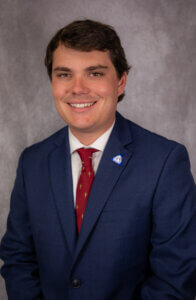 Jake Pendergrass is no stranger to Farm Bureau. He grew up on his family’s cow/calf operation in North Alabama and moved to Florida when he was
Jake Pendergrass is no stranger to Farm Bureau. He grew up on his family’s cow/calf operation in North Alabama and moved to Florida when he was  Katie Quincey is a proud fifth generation agriculturalist from Trenton. Her family’s cow/calf operation, Hines Cattle Co., is on the Gilchrist/Alachua County line in North Central Florida. In addition to commercial beef cattle, her family produces grass seed and hay.
Katie Quincey is a proud fifth generation agriculturalist from Trenton. Her family’s cow/calf operation, Hines Cattle Co., is on the Gilchrist/Alachua County line in North Central Florida. In addition to commercial beef cattle, her family produces grass seed and hay. The Florida Department of Environmental Protection (FDEP) monitors all major water bodies in the state of Florida for nutrient levels and potential pollutants.
The Florida Department of Environmental Protection (FDEP) monitors all major water bodies in the state of Florida for nutrient levels and potential pollutants.